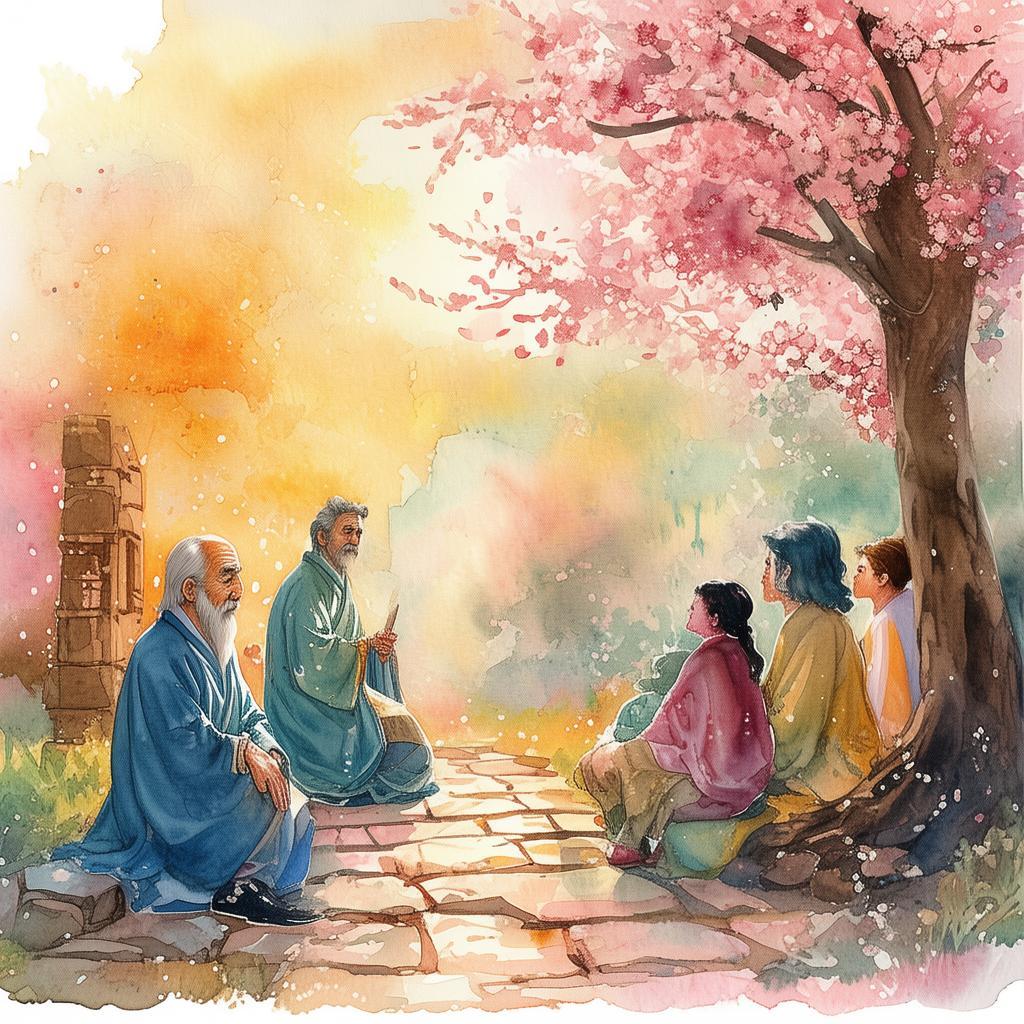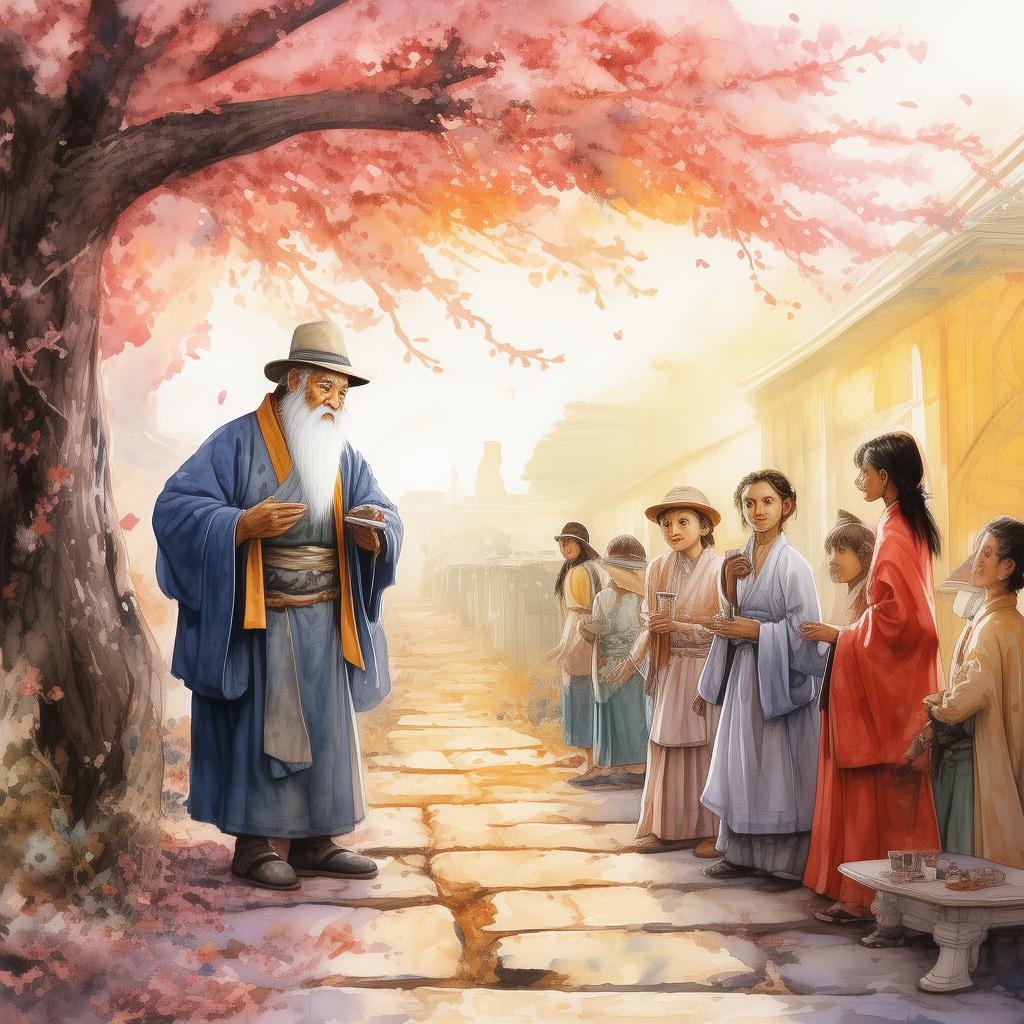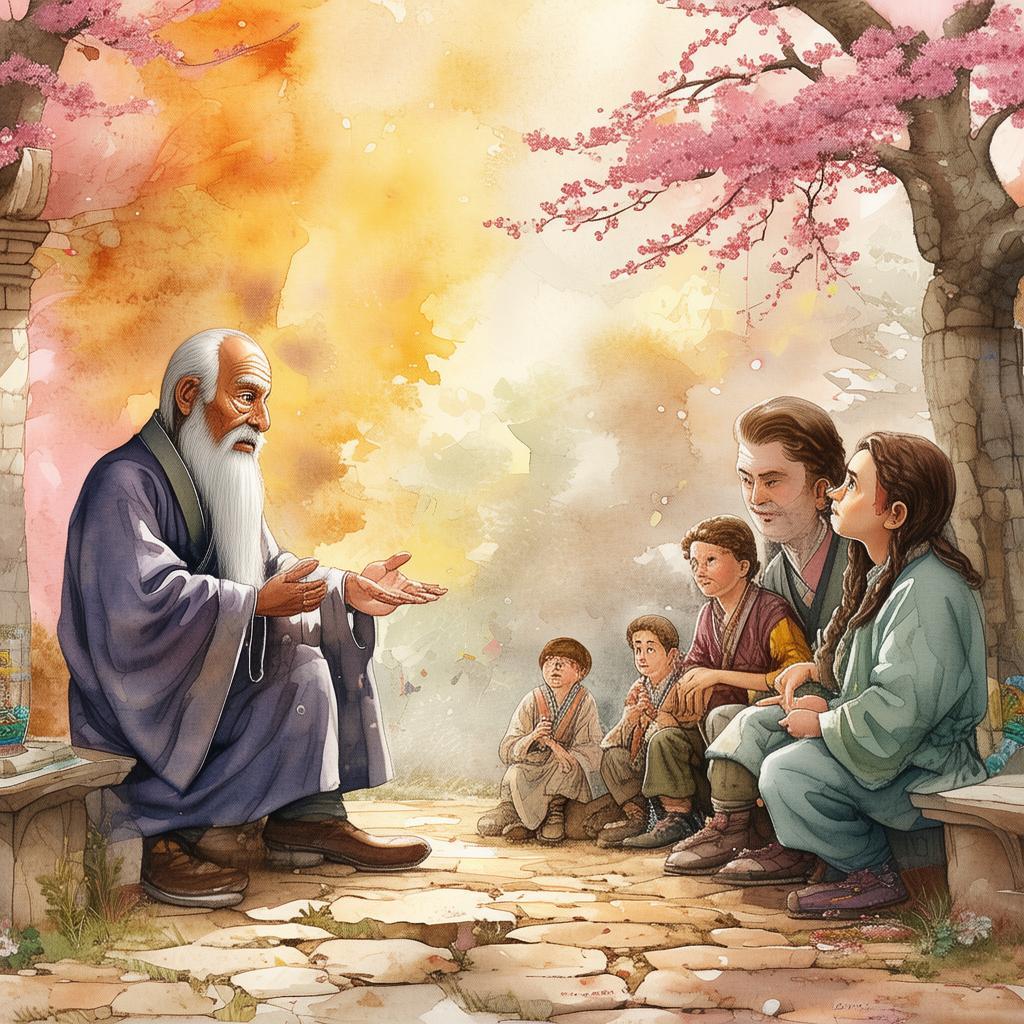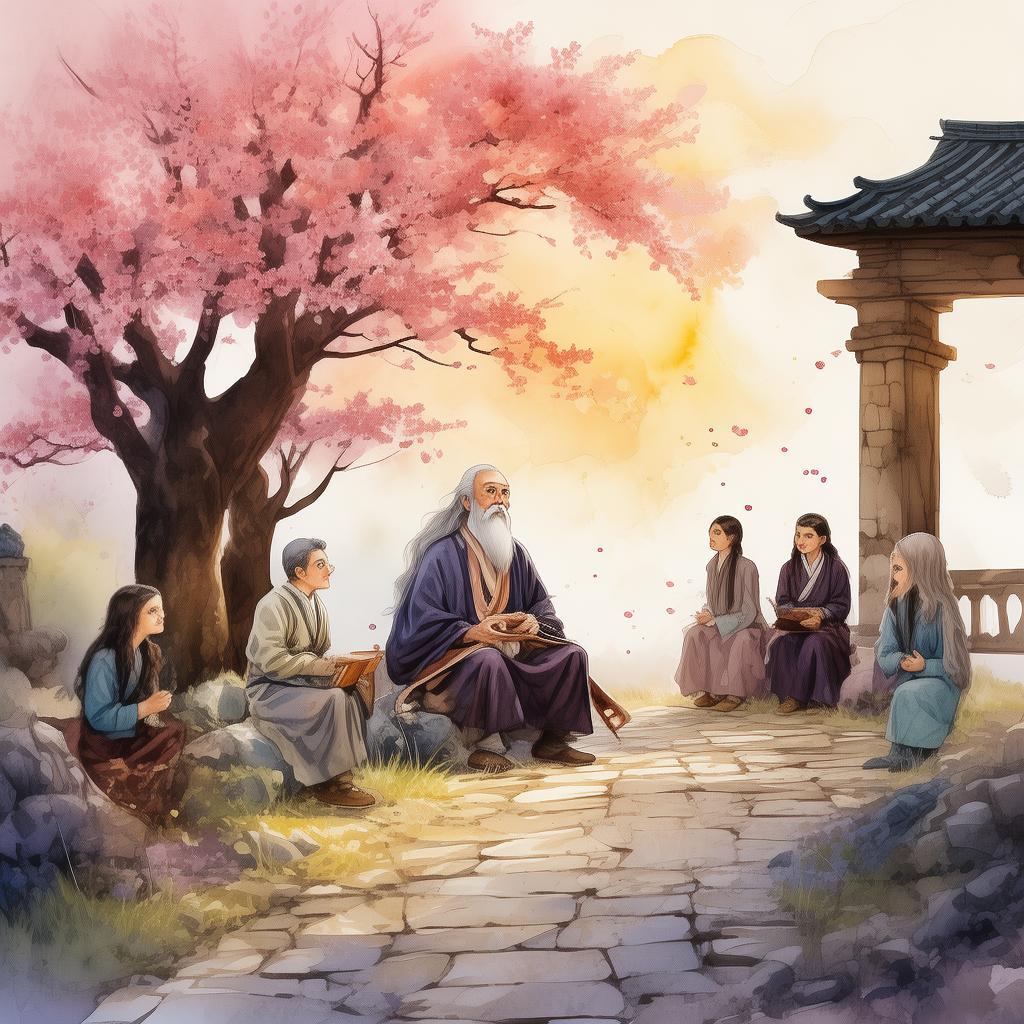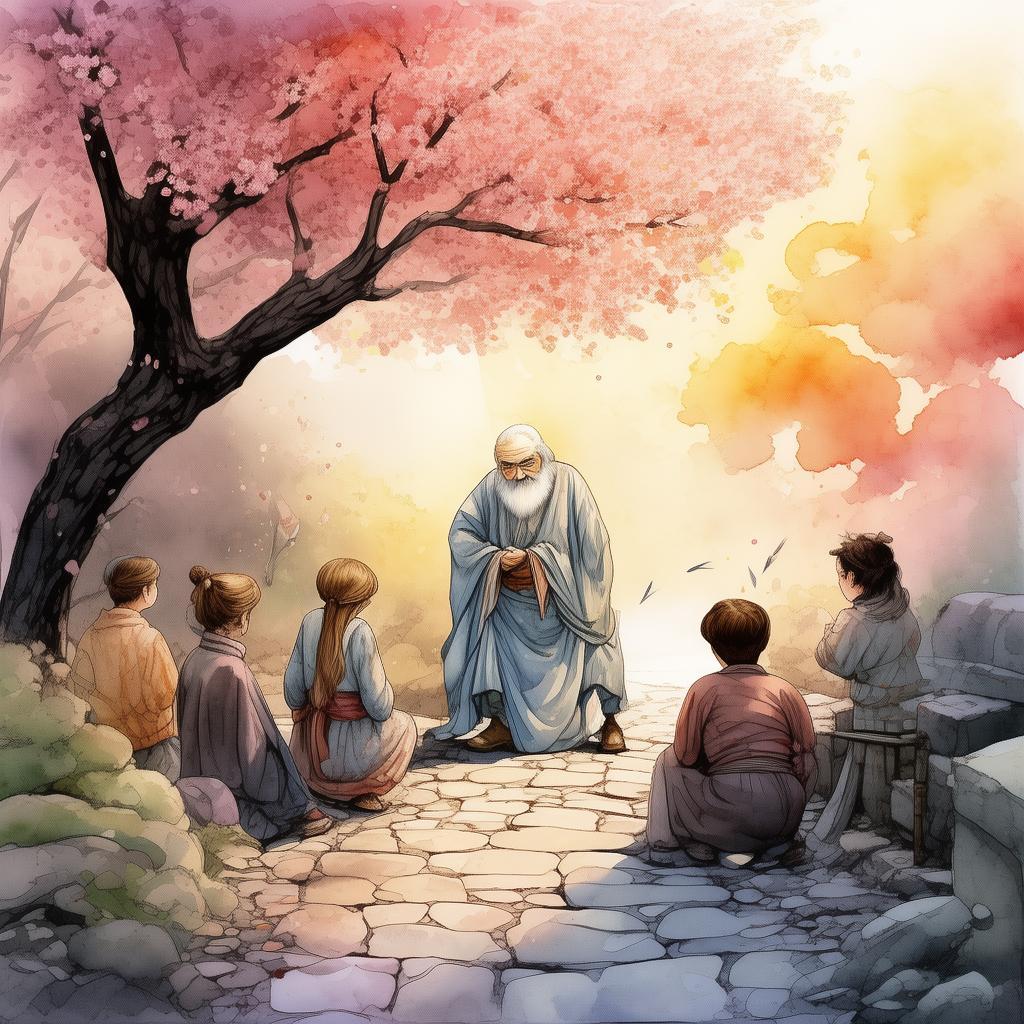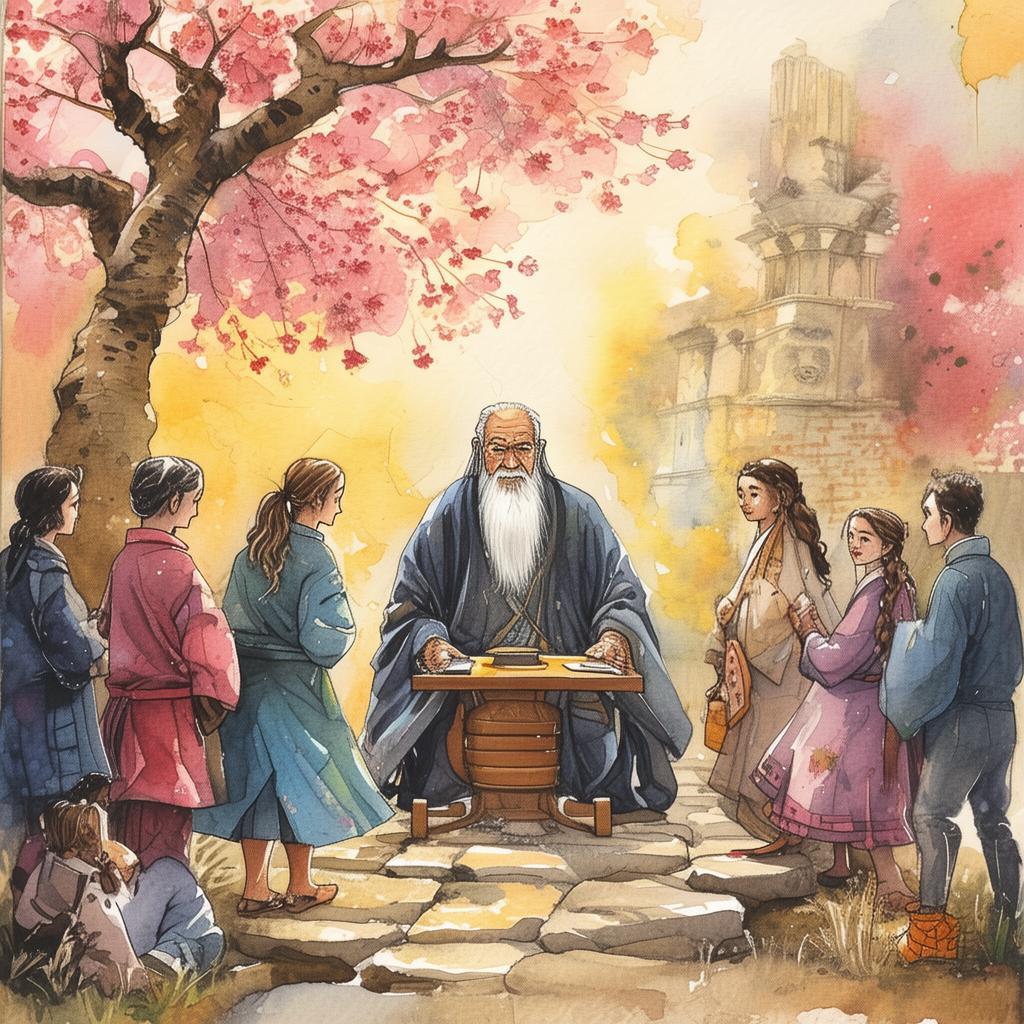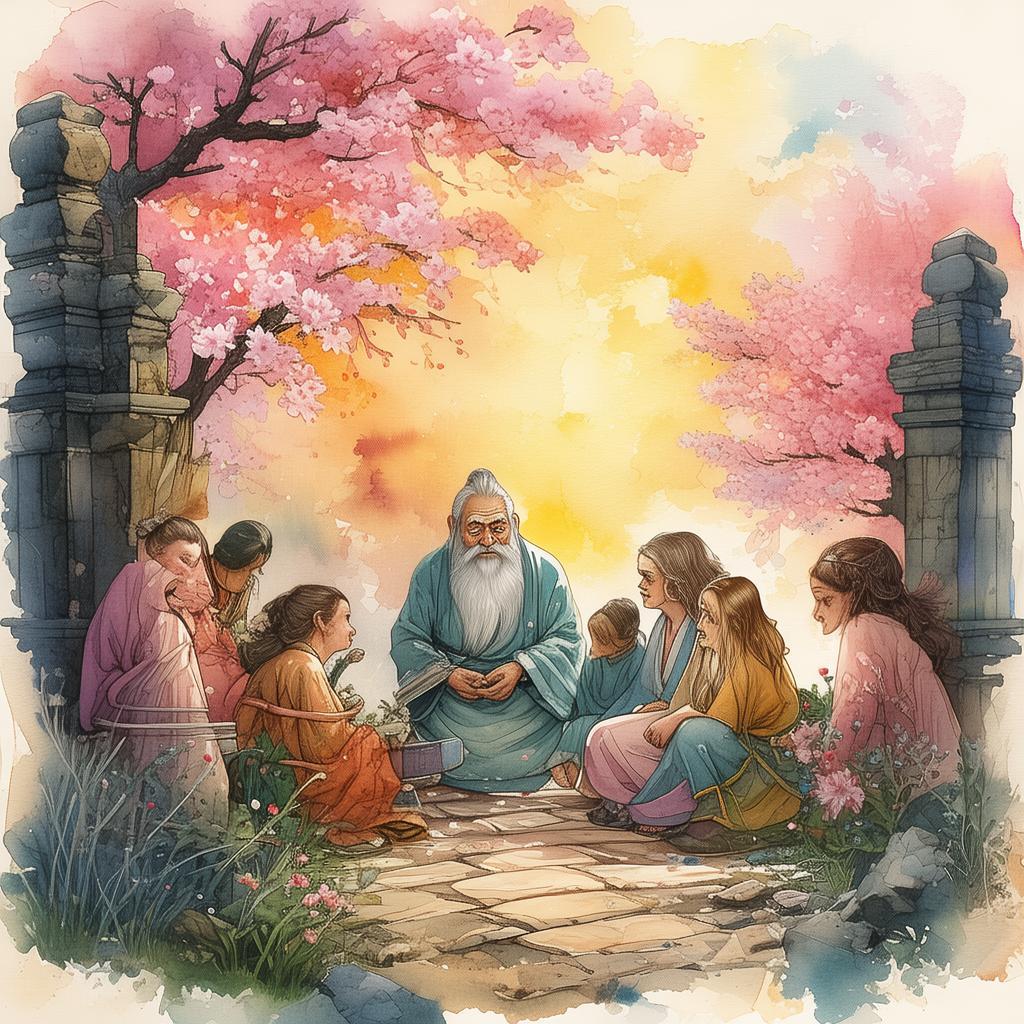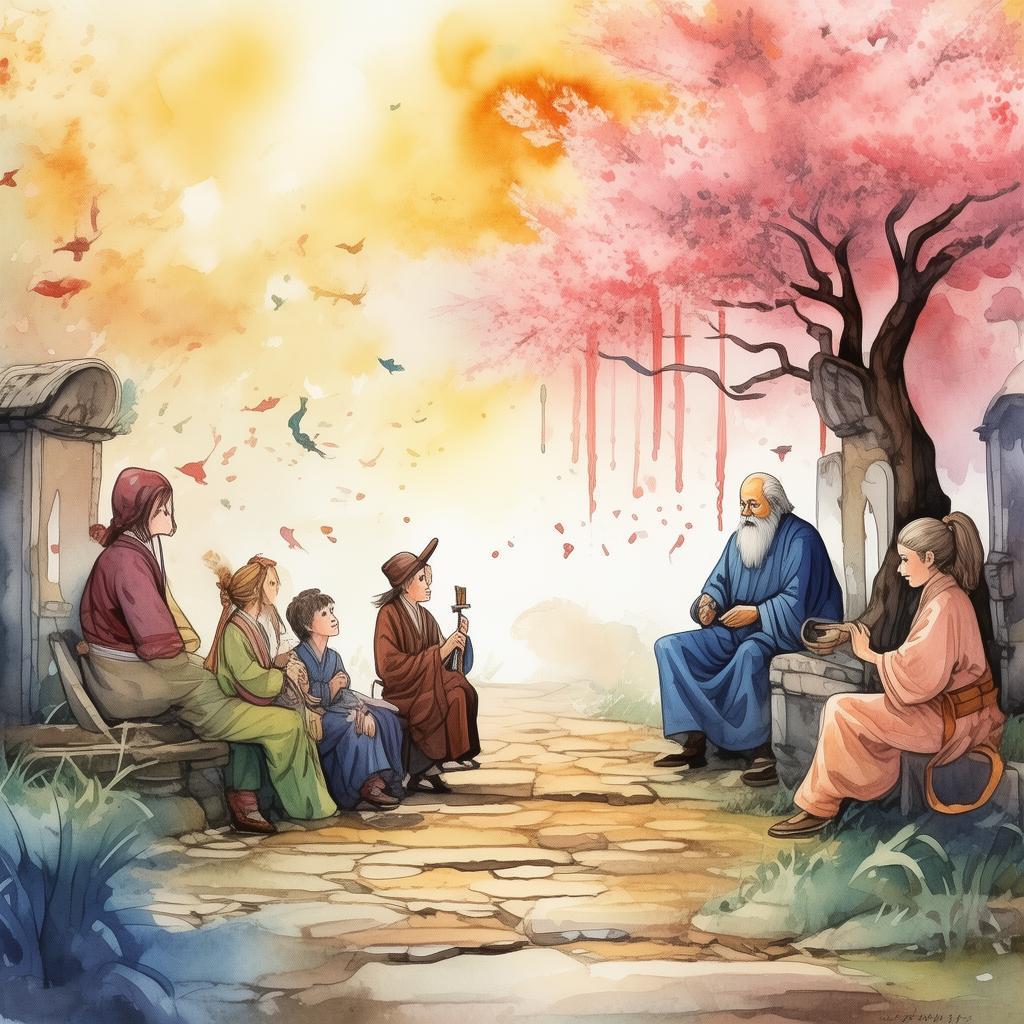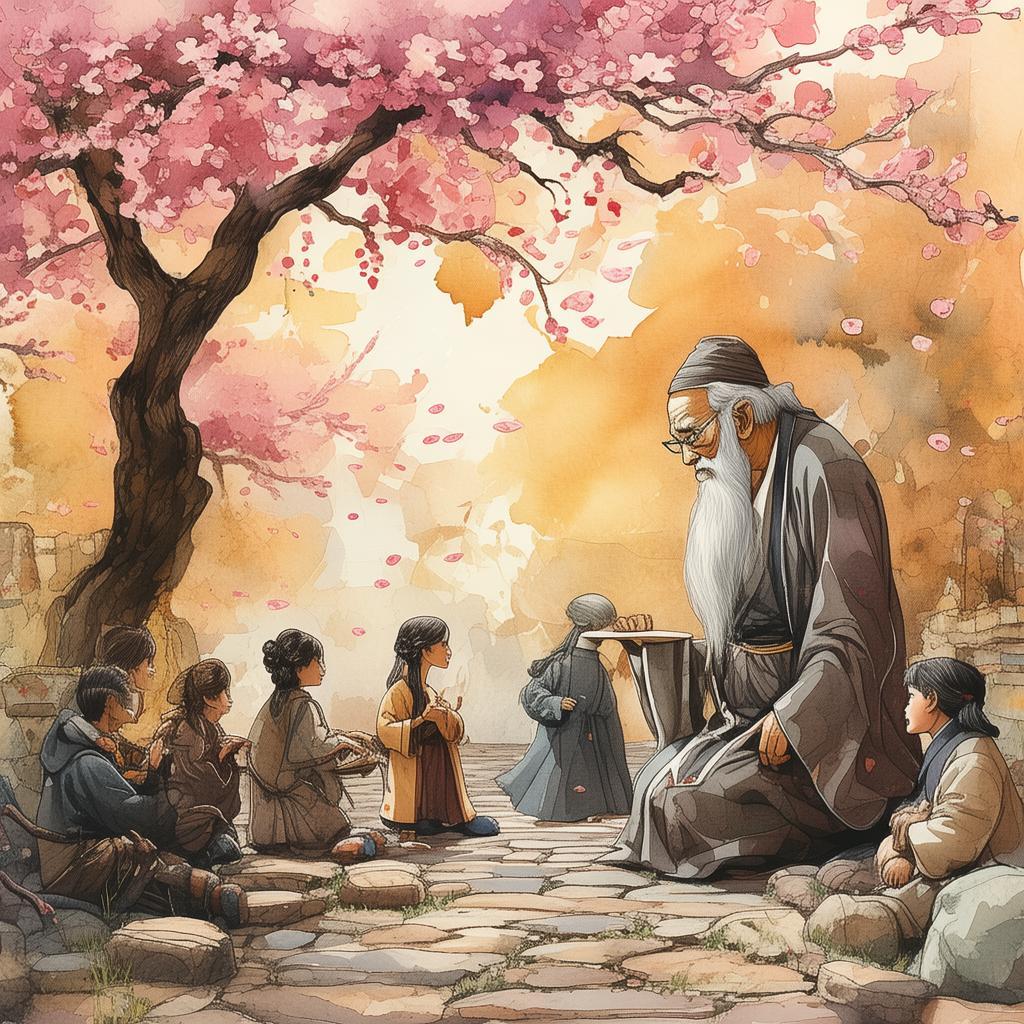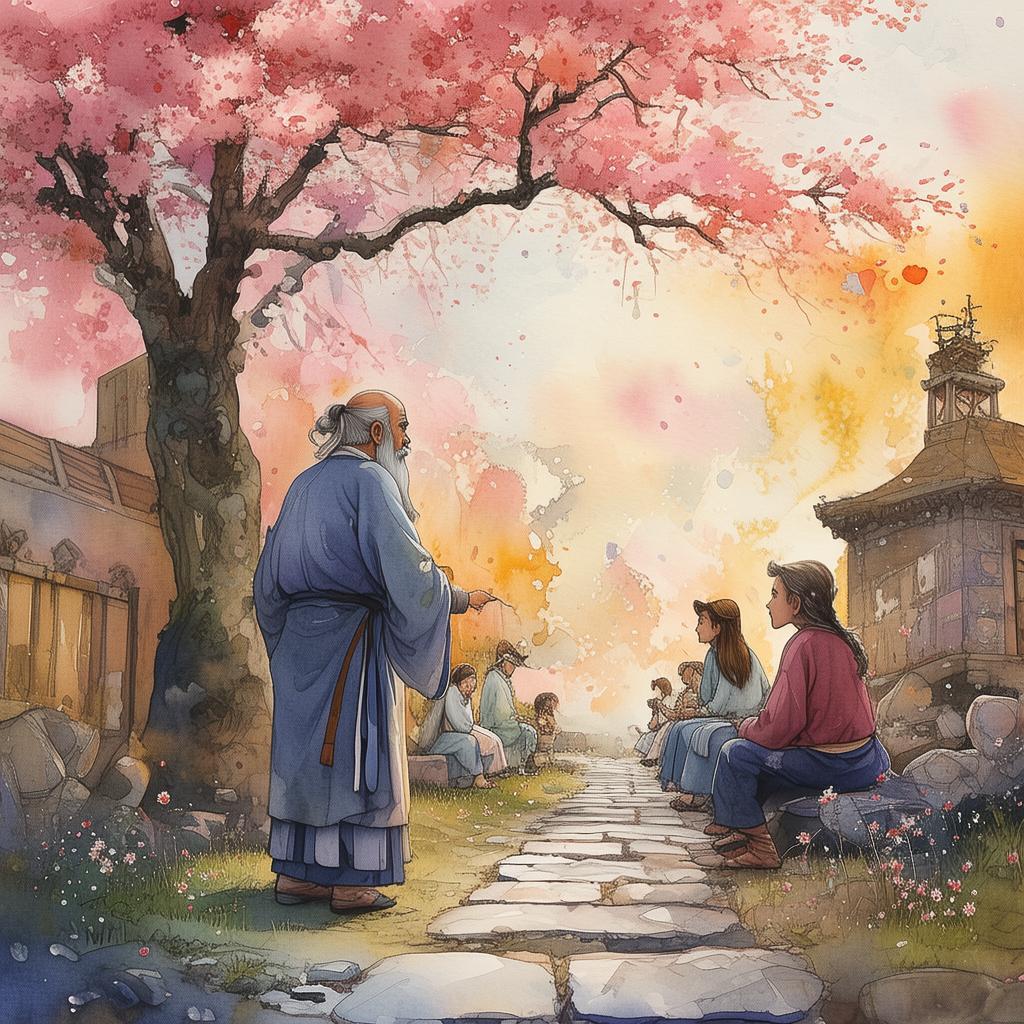The Labyrinth of Words: A Tale of the Pen and the Mind
In the heart of the ancient city of Lexiconia, where the air was thick with the scent of ink and parchment, there lived a young weaver of wisdom named Eudocia. Her father, a revered master of the art, had taught her the intricate patterns of language, the subtle dance of tropes and the powerful impact of words. But Eudocia's curiosity was not sated by the lessons of her father's teachings. She sought the ultimate truth: the origin of language itself.
One fateful day, Eudocia discovered an ancient scroll hidden in the attic of her father's library. The scroll, adorned with cryptic symbols and arcane runes, spoke of a labyrinth, a place where the very essence of language was born. According to the scroll, only one who could navigate the labyrinth could unravel the mystery of language's origin.
Determined to uncover the truth, Eudocia set out on her quest. She knew the labyrinth was a place of great danger, filled with riddles and illusions that could ensnare the unwary. But her resolve was unshaken. She gathered her tools—a quill, ink, and parchment—and set out, her heart pounding with a mix of fear and excitement.
The labyrinth was a vast, winding maze of corridors and chambers, each one more treacherous than the last. Eudocia's first challenge came in the form of a riddle, etched into the stone wall of a dimly lit chamber:
"What is that which is not, yet is? That which is, yet is not? And that which is and is not?"
Eudocia pondered the riddle, her mind racing with possibilities. After much thought, she realized the answer was "language." Language is that which is not a tangible thing, yet it exists and shapes our reality. It is both present and absent, a constant companion that we cannot see but feel.
With the riddle solved, Eudocia continued her journey. The labyrinth's corridors grew narrower, the air colder, and the light dimmer. She encountered many more challenges, each testing her knowledge of tropes and her understanding of the mind's capacity to create meaning from the void.
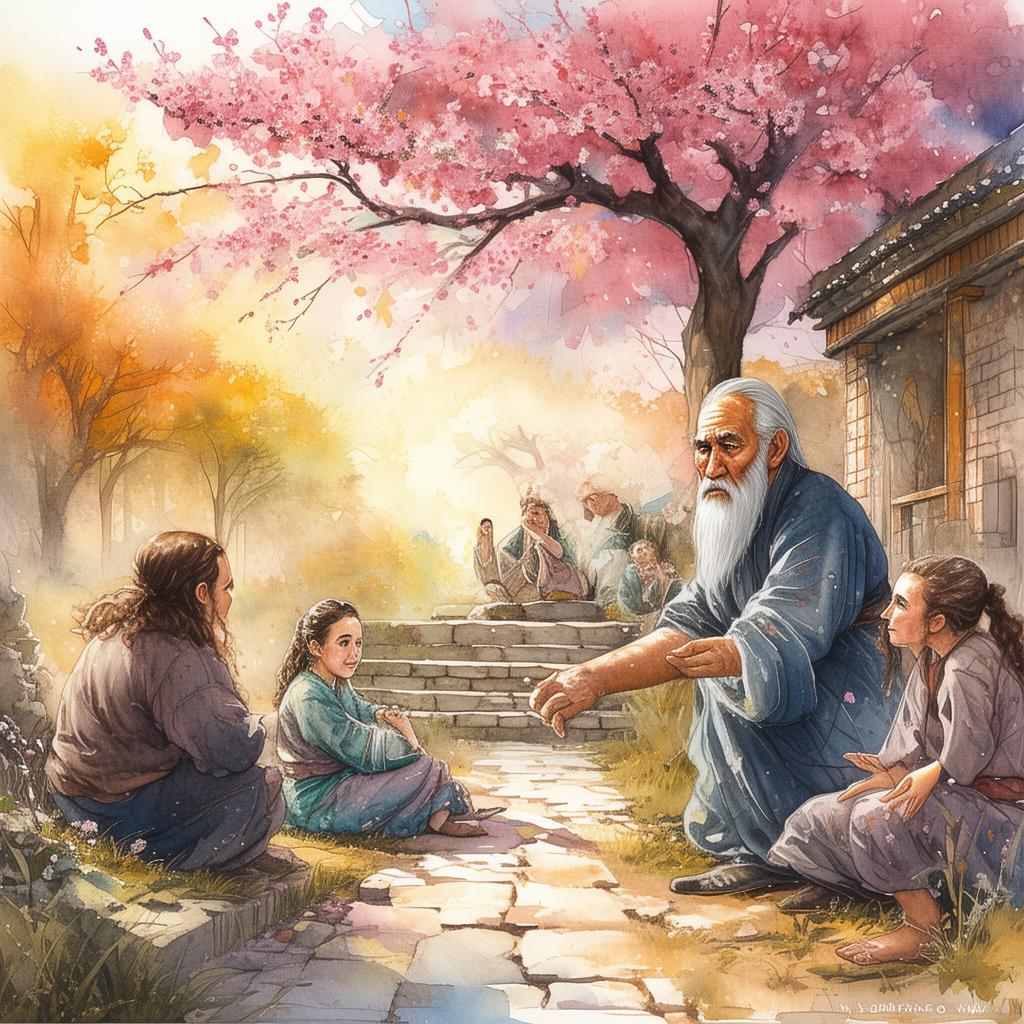
One chamber was filled with a cacophony of sounds, each more jarring than the last. Eudocia had to discern the true meaning behind the noise, which turned out to be the sound of words being formed, the birth of language itself.
In another chamber, she faced a mirror, reflecting her own image. The mirror was a metaphor for the mind, which can perceive reality only through the lens of its own understanding. Eudocia had to confront her own biases and preconceptions, understanding that the truth of language lay not in the words themselves, but in the mind's interpretation of those words.
As Eudocia neared the end of her journey, she encountered the labyrinth's final challenge: a room filled with books, each one containing a different version of the origin of language. She had to choose one, knowing that her decision would determine the outcome of her quest.
Eudocia selected the book that spoke of language as a gift from the gods, a divine creation that allowed humans to communicate and share their thoughts and feelings. She realized that the true origin of language was not a single event or person, but a collective experience, a gift that humanity had received and nurtured over time.
With the labyrinth's mysteries unraveled, Eudocia emerged into the light, her mind illuminated by the wisdom she had gained. She returned to Lexiconia, her father's library, and began to write a new scroll, one that would pass on the knowledge she had acquired.
The Labyrinth of Words became a legend, a tale of the power of the mind and the enduring mystery of language. Eudocia's story served as a reminder that the origin of language is not a single event, but a continuous journey of discovery, one that each of us undertakes in our own way.
✨ Original Statement ✨
All articles published on this website (including but not limited to text, images, videos, and other content) are original or authorized for reposting and are protected by relevant laws. Without the explicit written permission of this website, no individual or organization may copy, modify, repost, or use the content for commercial purposes.
If you need to quote or cooperate, please contact this site for authorization. We reserve the right to pursue legal responsibility for any unauthorized use.
Hereby declared.
